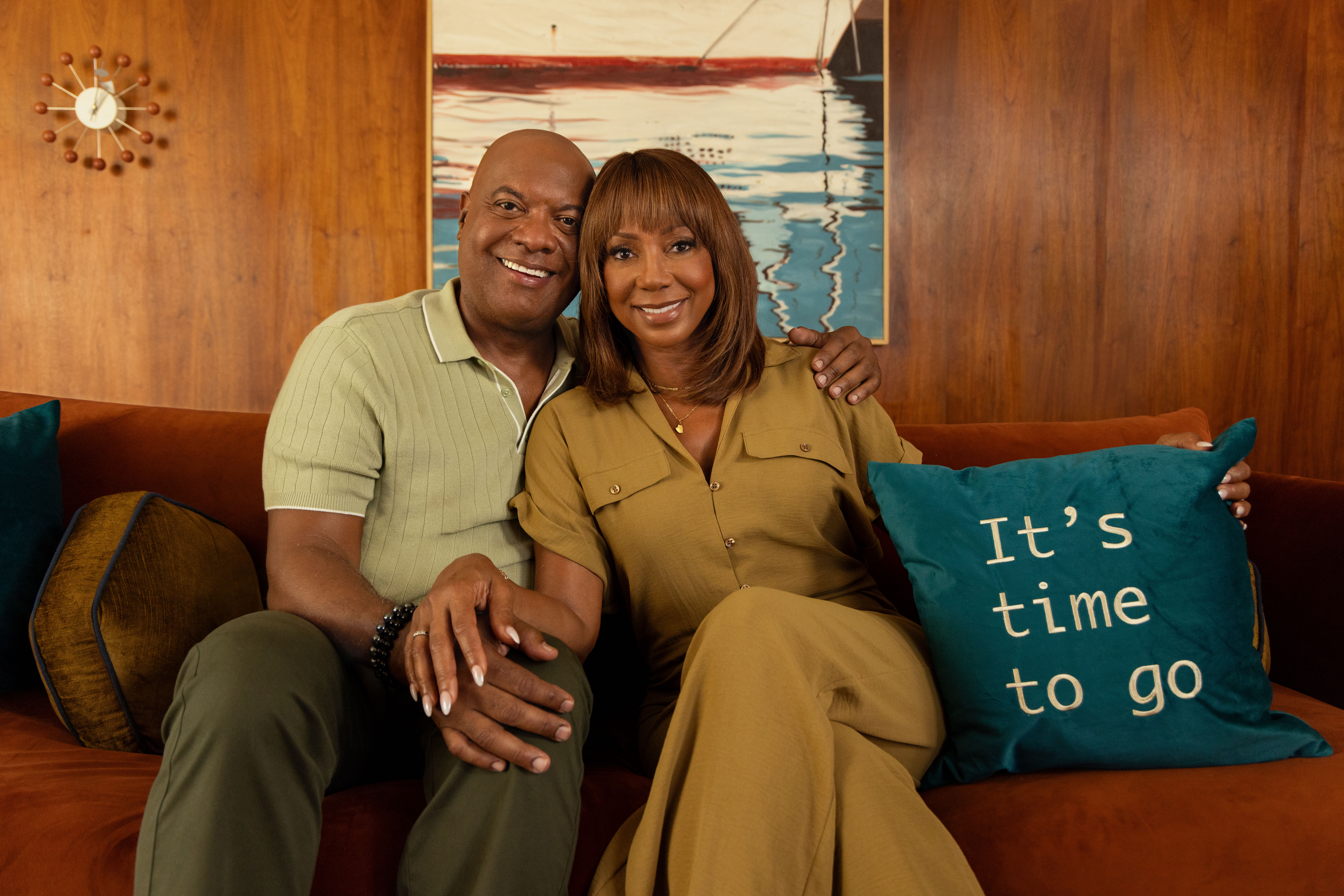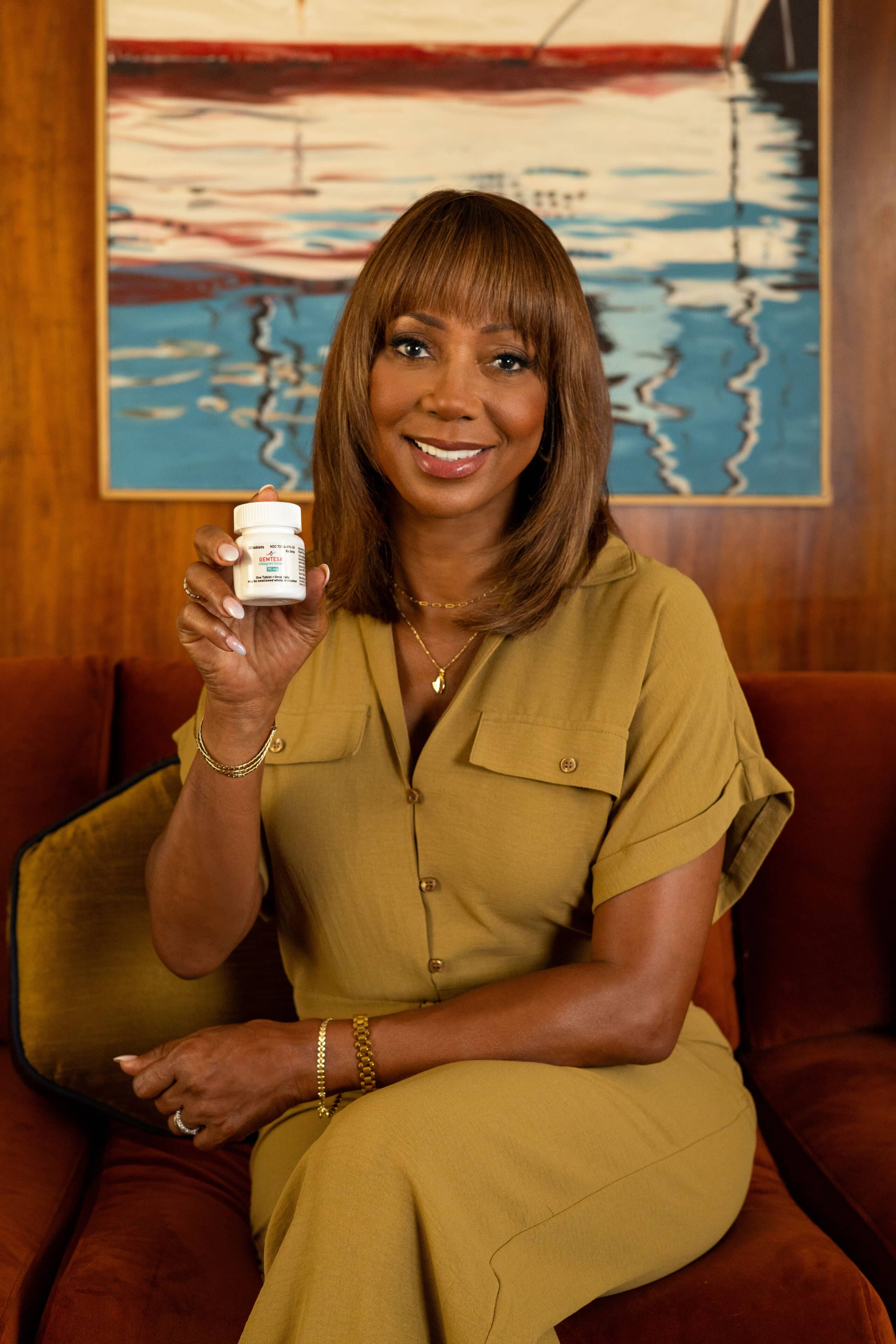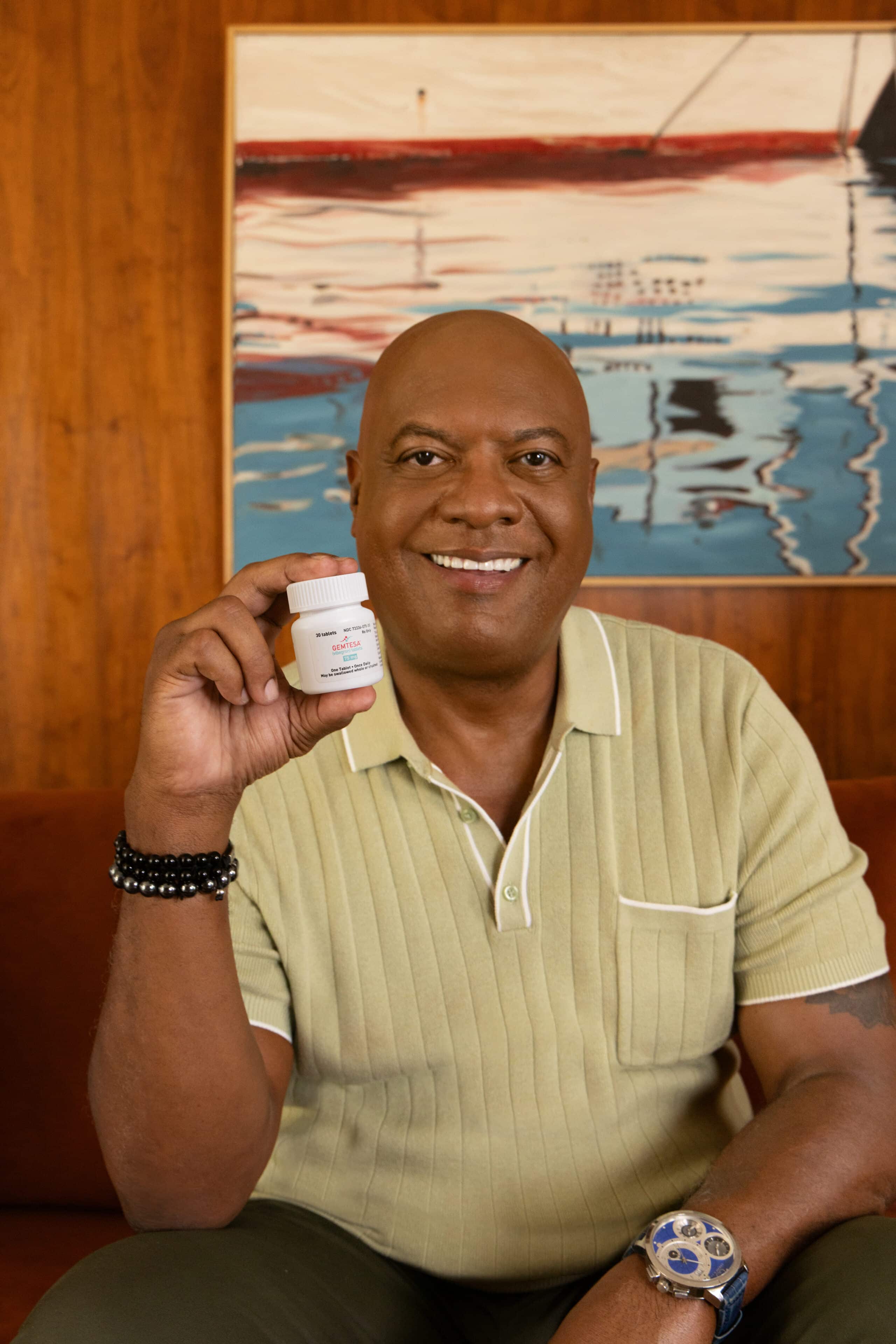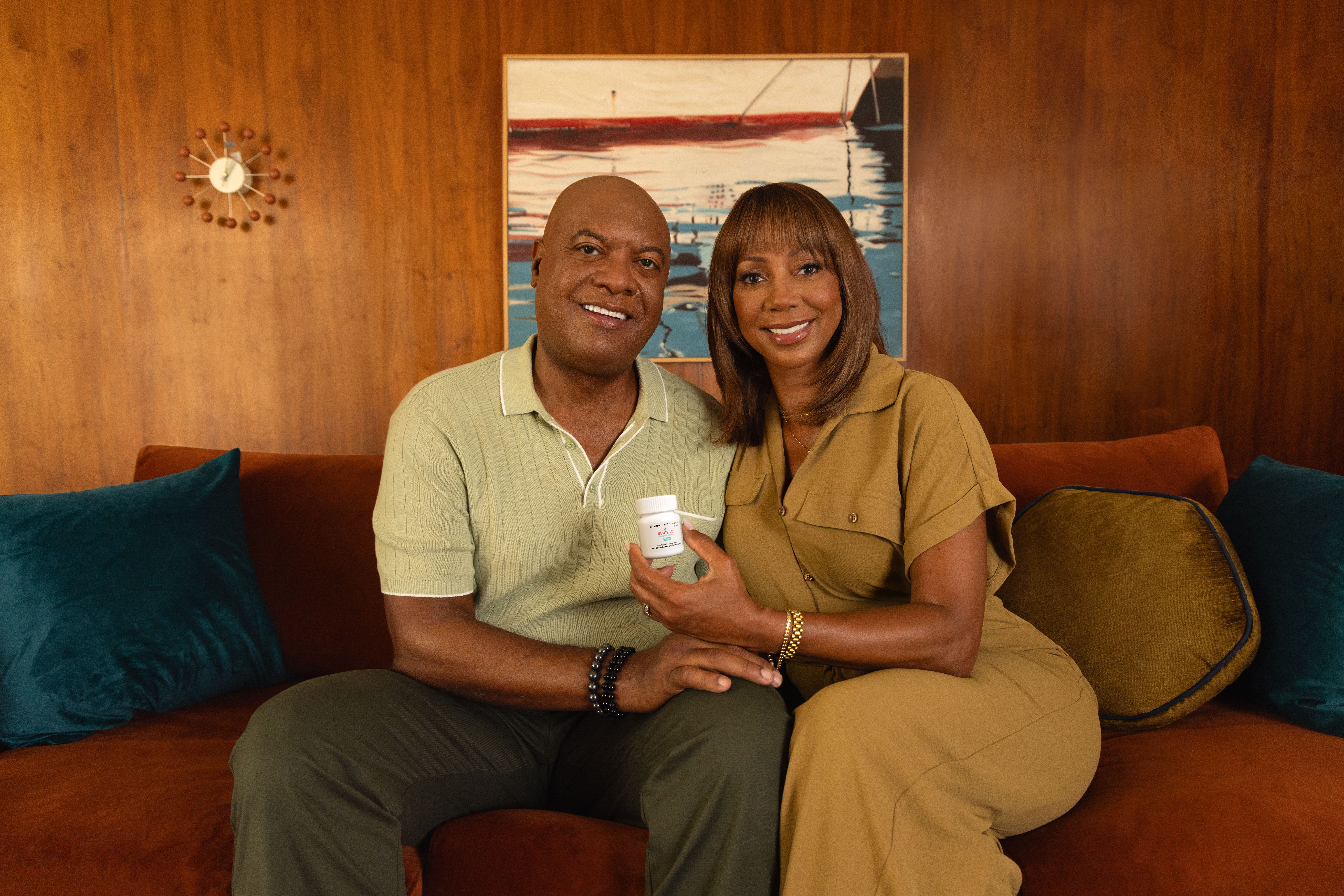
For decades, Holly Robinson Peete and Rodney Peete have used their platform to advocate for serious causes, most notably Parkinson’s Disease and autism through the HollyRod Foundation. Now, the longtime couple is turning the spotlight on a shared, often-private struggle: Overactive Bladder Syndrome (OAB), through a partnership with Sumitomo Pharma America’s “Time to Go” campaign.
Their mission is to help break the stigma surrounding OAB—a condition that touches 33 million Americans—and to encourage others to seek the care and support they need.
How Holly Realized Something Was Wrong
Holly’s story began about four years ago during a casual chat with friends. She found herself joking about how frequently she needed to run to the restroom and the increasing episodes of leakage.
“We were having conversations about health and wellness and just stuff that girlfriends chat about,” Holly tells BlackDoctor.
Initially, she attributed the symptoms to menopause. However, a friend who had been diagnosed with OAB suggested she get checked.
“I went to talk to a doctor, and that’s when I got the diagnosis and found out that I had it,” Holly shares.
She was prescribed Gemtesa, which she says “helped my symptoms a lot. It just really helped reduce my symptoms and made my life a little bit more manageable.”
Once she understood her own condition, she noticed a familiar pattern in her husband.
“He had very similar symptoms,” she shares. “And I was like, ‘I think you might have it too.’”

Rodney’s Symptoms and the Turning Point
For former NFL quarterback Rodney Peete, frequent bathroom runs were a running joke among his friends.
“…Every time somebody would get up and have to go to the bathroom, everybody would say, ‘Oh, see, that’s two, that’s three, that’s four. You’ve got to go more than anybody else.’ And we would take bets,” Rodney recalls.
Like many men, he brushed it off, chalking it up to getting older. Holly recognized the symptoms and nudged him toward a doctor, despite his initial resistance.
“I went to the doctor, and sure enough, I was diagnosed with OAB. And it…just put a name to what was going on with me as opposed to just getting older,” Rodney explains. He notes that men often attribute discomfort to aging, thinking, “I’m older my eyes are getting bad,” or “I’m older, that’s why I’m going to the bathroom so much.”

Managing Symptoms in the Public Eye
Their diagnoses meant rethinking how they worked. Holly remembers shooting Christmas movies in multiple layers of wardrobe, trying to manage bathroom trips without slowing down the set. She jokingly recalls frequently being called “10-1,” the on-set code for an actor who’s slipped away to the restroom.
Rodney faced his own hurdles. Live radio doesn’t allow for extended breaks, and sudden urgency often threw off his focus—or forced him to cut it close.
Eventually, they realized they needed a better approach. With treatment and honest communication, they were able to regain control and settle into a routine that worked for both of them.
How Shared Health Struggles Strengthened Their Marriage
After thirty years together, the Peetes have learned how to be honest without being hurtful.
“Holly knows me better than anybody else, and she knows what’s going on. And the reason why we’ve been married for 30 years is that we can be straight up and be honest with each other,” Rodney says.
He appreciates her “tough love,” such as, “Hey, you’ve got to do this. You’ve got to go to the doctor,” or, “What’s going on with you?” and “We’re not going to let each other slide when it comes to health.”
Rodney stresses how crucial it is for men—especially Black men—to get checked early. Too often, he says, they skip appointments, either assuming their discomfort is just part of getting older or avoiding the doctor out of fear of what they might learn.
“We’re not 22 anymore, where you can just write things off and go, ‘I’m 22, and I can withstand anything. I’m invincible.’… So many things are treatable if you get ahead of it,” he explains.

A Call for Compassion
For others looking to encourage a loved one, Holly advises a compassionate approach, even if they share a long history that allows for bluntness.
“Just say, ‘You know, honey, this is coming from a really loving place. But I really would appreciate it if, for us, you would go to the doctor and just get checked on this, because this could really help you in your life and it could help us as a couple.’ You just have to have a compassionate approach,” Holly says.
Rodney, who also lives with benign prostatic hyperplasia (BPH)—a noncancerous enlargement of the prostate—understands firsthand just how important regular screenings are, particularly after age 50.
“The earlier you can go and get things checked out and the earlier you can detect something, the more preventable it can be,” he stresses.
Using Their Platform for Awareness
By joining the “Time to Go campaign,” Rodney is embracing the “Go Getter” title, seeing it as a chance to help others feel less alone. He wants men to understand that these health issues are common and treatable, and that silence helps no one.
Now, in the empty-nest chapter, Holly and Rodney are focused on traveling, new projects, and enjoying the freedom that comes with better health management. They also co-host the dating shows “Queens Court” and “Kings Court”, which has reminded them of the value of their decades-long partnership and the advice they can share.
“We have been doing this for a while. We have been through a lot together and experienced a lot together,” Holly notes.
She adds that hearing people say, “‘Hey, I want what you have,’ or, ‘Hey, I think, one day I can be married like you guys,’ makes them appreciate their own accomplishments as a couple.
The Next Step
Looking ahead, the couple has several joint projects in the works and plans to continue raising awareness around OAB and BPH, as well as supporting autism and Parkinson’s communities. Holly even hopes to pursue commercial campaigns that bring humor and honesty to health conversations.
For now, their goal remains clear: Help people talk about what they are going through, encourage earlier checkups, and lift the stigma. They want to show that facing health challenges together can ultimately make a marriage stronger.









